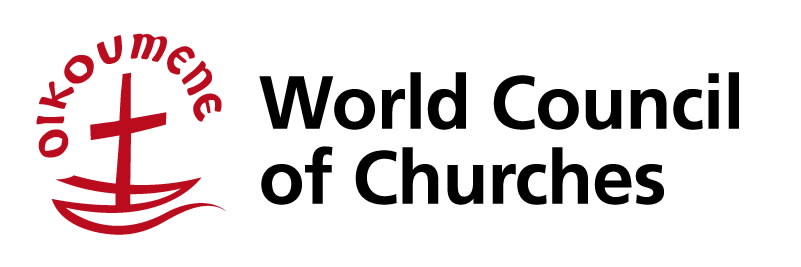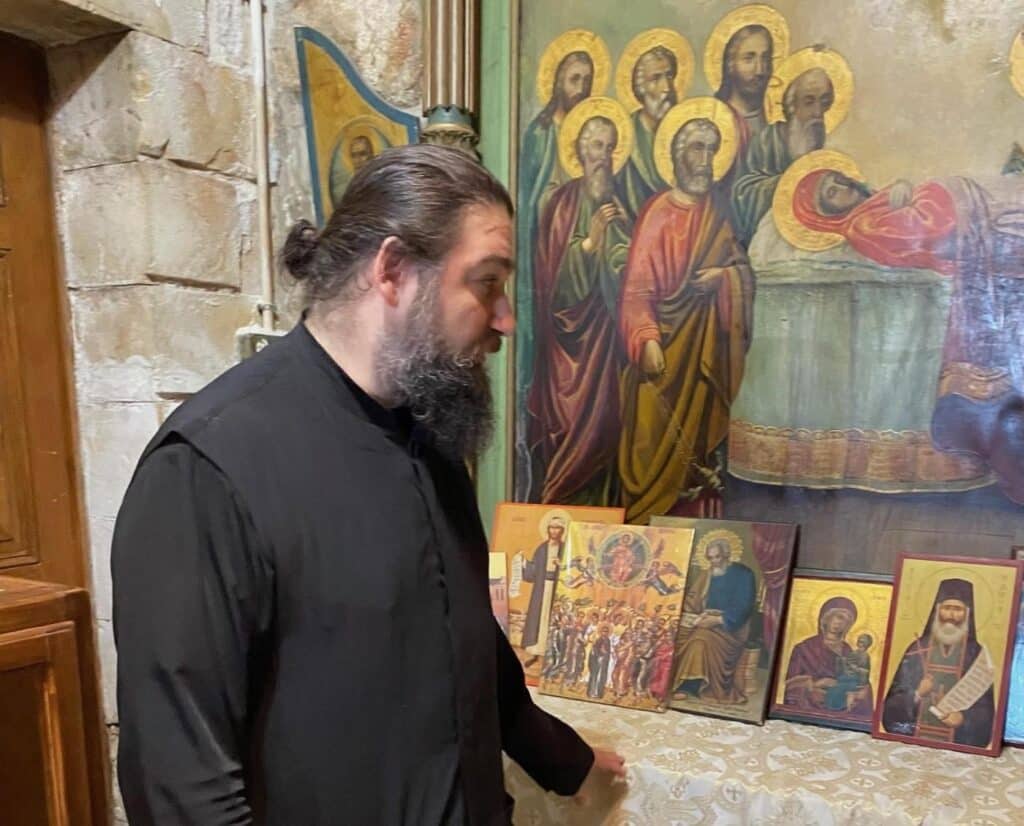WCC NEWS: Orthodox Patriarchate Seminary in Jerusalem urges “know your neighbor”
Mount Zion, located just outside the current walls of the Old City, via Zion Gate, is of great importance to Christians because this is the area of Dormition Abbey, the Cenacle (the traditional spot for remembering the Last Supper and washing of the Apostles’ feet), and where the Holy Spirit descended upon them in the event of Pentecost.

In addition to the holy sites listed above, Mt Zion is home to Protestant, Catholic, and Orthodox cemeteries since the 13th century, as well as school grounds belonging to the Greek Orthodox Patriarchate. On the site is an ancient catacomb believed to be the location where early Christian believers went into hiding after the crucifixion of Christ. Today, a chapel stands above the catacomb and is where the prayers of Pentecost are read on Monday of the Holy Spirit.
Christian properties on Mt Zion have become the target of Israeli radical groups who wish to drive the Christian presence out of there and of Jerusalem more broadly.
Last week, members of the World Council of Churches (WCC) Jerusalem delegation—Yusef Daher, programme executive of the Jerusalem Liaison Office; Iskandar Majlaton, local programme coordinator of the Ecumenical Accompaniment Programme in Palestine and Israel; and George Sahhar, advocacy officer of the Jerusalem Liaison Office and Ecumenical Accompaniment Programme in Palestine and Israel—visited the Orthodox school of Mount Zion.
Father Matheos, the principal of the Patriarchal school and the chief dragoman, welcomed the delegation, gave an introduction about the history of the school, and led a tour in the area.
The Patriarchal school of Mt Zion, which is also a boarding school, is a high school and lyceum equal to the Greek public schools of secondary education, authorized by the government since 1911 and, since the 1970s, it is the seminary of the Patriarchate. Its goal is to coach young men to become capable of bearing the high mission of the national and spiritual Hagiotaphite heritage. The school graduates decide on their free will if they want to join the brotherhood afterwards.
The issues and challenges facing the seminary and the other churches in Mt Zion have increased during the past decade.
“For the last five years, our students are not granted student visas,” said Father Matheos. “Now we have 11 seminarians instead of the 25 who were supposed to come because of this problem. We have been working to solve this problem, so we can receive more students as the previous years but still we haven’t managed.”
Behind the seminary there’s a piece of land that’s owned by the Patriarchate. The Pentecost chapel and a basketball court are built there. Israeli radicals enter the land anytime they want, as the municipality assigned it as public area and prevented the church from controlling the several entrances to it. They can also be seen sitting there freely.
The chapel, that was built above the catacomb there, is vandalized and the locks of its door are broken frequently. Paint poured inside it by radicals can also be seen.
The basketball court branded with the Patriarchate logo is regularly vandalized in a physical and rhetorical act of intimidation against the churches. Because of this, the church has hired a private security guard who is regularly threatened, even with death in an incident two years ago. Religious processions are loudly and violently protested by religious Israeli radical groups every year and police are required for the safety of priests and pilgrims. This animosity is fueled by Jewish claims to the lot as the burial site of King David. Although the believed site of David’s Tomb is below the Upper Room in the Cenacle, this group has created a makeshift site for the Tomb of David along the wall in an attempt to justify their claim to the space.
Priests and young seminarians residing in the different churches and monasteries in Mt Zion are subject to harassment, intimidation, and spitting regularly. Radicals consider Christians to be profane and can’t tolerate seeing them wearing the cross, and that’s the reason why clergy are exposed to these hate crimes everywhere around the City of Jerusalem and not only in Mt Zion.
Father Matheos recalled an incident, two weeks ago, when a young boy spat at a bishop who complained to the police close to Jaffa Gate, which is the main entrance to the Christian Quarter of the Old City of Jerusalem. The priests see no use in filing complaints, viewing it as a waste of time, and the perpetrators are often set free without charges.
Father Matheos believes we must look at the issue from an educational perspective. When his seminarians were harassed, Father Matheos went to the children, asked them sit down, and told them that we are all neighbors, that we must respect one another, and that we must live together in peace.
He explained to the children that what they are doing is wrong, and that if you take the time to know your neighbors then you will respect them—whether they are Christians, Jews, or Muslims.
Daher reflected that the harassment is meant to drive Christians out, and to create a geographic contiguity of settler presence in East Jerusalem.
“We, too, are having access issues by car to the World Council of Churches office in another neighborhood,” Daher explained.
He added that the land leading to the seminary is the backyard of an Armenian lot threatened with takeover by setter groups, while the seminary’s garden is adjacent to land where a cable car is planned to create a road that connects two settler enclaves in East Jerusalem. “Activities of radical Israeli groups threaten to change the identity of Jerusalem, converting it into an exclusively Israeli identity—a threat highlighted by the heads of churches in no less than 12 statements they have issued during the last two years—and they keep bringing it up through all available diplomatic channels,” said Daher.

